
Will Hong Kong’s biggest-ever reclamation project solve its housing woes?
The Hong Kong Legislative Council on Friday approved an initial funding requested to kick-start a feasibility study for Lantau Tomorrow Vision, a massive land reclamation scheme aimed at creating the city’s next housing and business hub.
The contentious bill was passed in the absence of the opposition camp, whose members resigned en masse last month after four of their colleagues were summarily booted from the legislature over their political stance.
But the HK$550 million (US$71 million) in funding for the study is only the first step in a long process that could take more than a decade to deliver any tangible results. Here’s a look at the history of the project, the controversies surrounding it and whether it can – as its proponents maintain – solve the city’s housing woes once and for all.
What is Lantau Tomorrow Vision?
A signature policy of city leader Carrie Lam Cheng Yuet-ngor, the HK$624 billion grand plan aims to build 1,000 hectares of artificial islands – equivalent to one-fifth of urban Kowloon – in the waters east of Lantau Island and west of Hong Kong Island, where the city’s current central business district is.
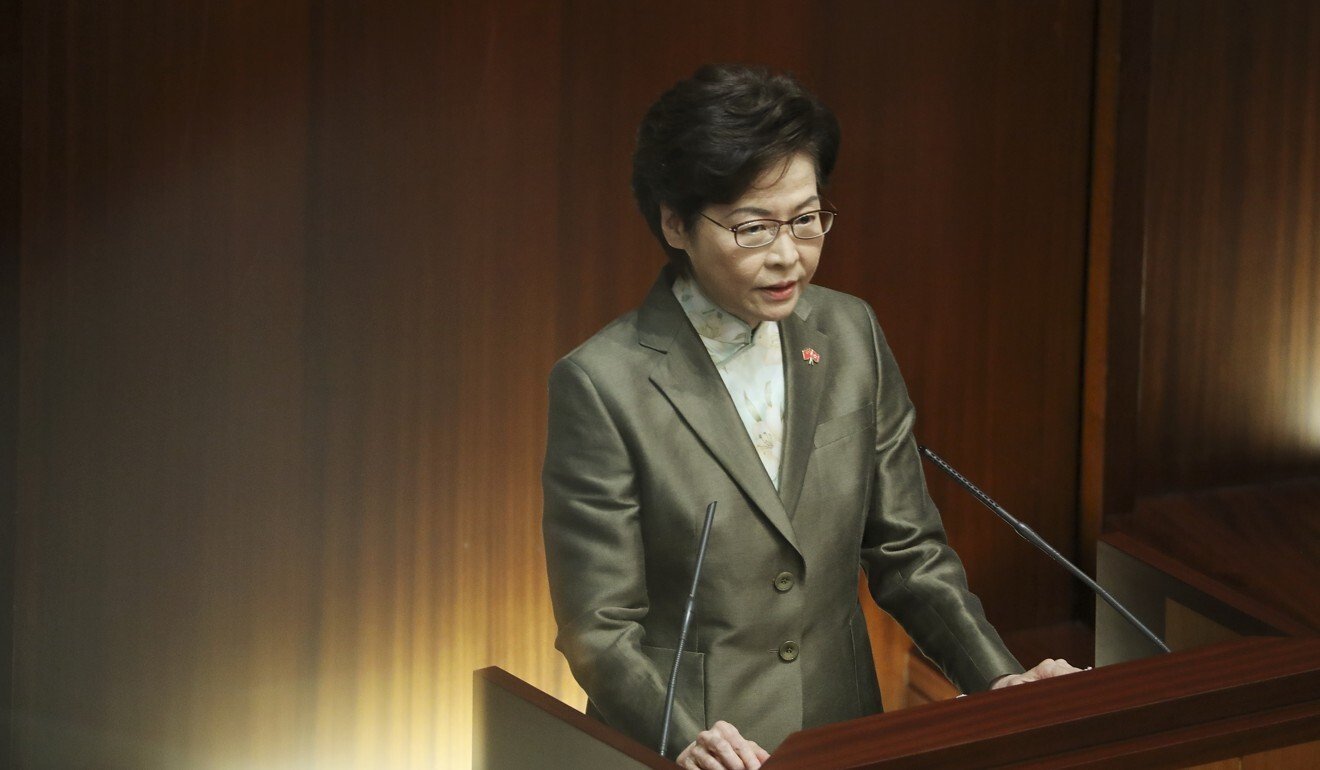
It could provide up to 260,000 public and private flats, with the first batch of residents able to move in by 2034.
The islands will be served by a new transport network, including 56km of roads and rail that would connect the islands to Lantau and the River Trade Terminal in Tuen Mun, providing corridors to existing business centres.
It would be the city’s costliest infrastructure project ever.
Lantau Tomorrow Vision will be even bigger in scale than some of the better known reclamation schemes overseas in recent years. It is almost three times the size of Marina Bay in Singapore, where 360 hectares of reclaimed land were developed into a prime waterfront location for commercial, residential and leisure use.
United Arab Emirates’ Palm Jumeirah in Dubai, an artificial archipelago built to resemble a palm tree, is 560 hectares in size, less than half as big as Lantau Tomorrow. The islands were built in the 2000s, at a reported cost of some US$12 billion, and were estimated to house more than 10,000 people in 2015.
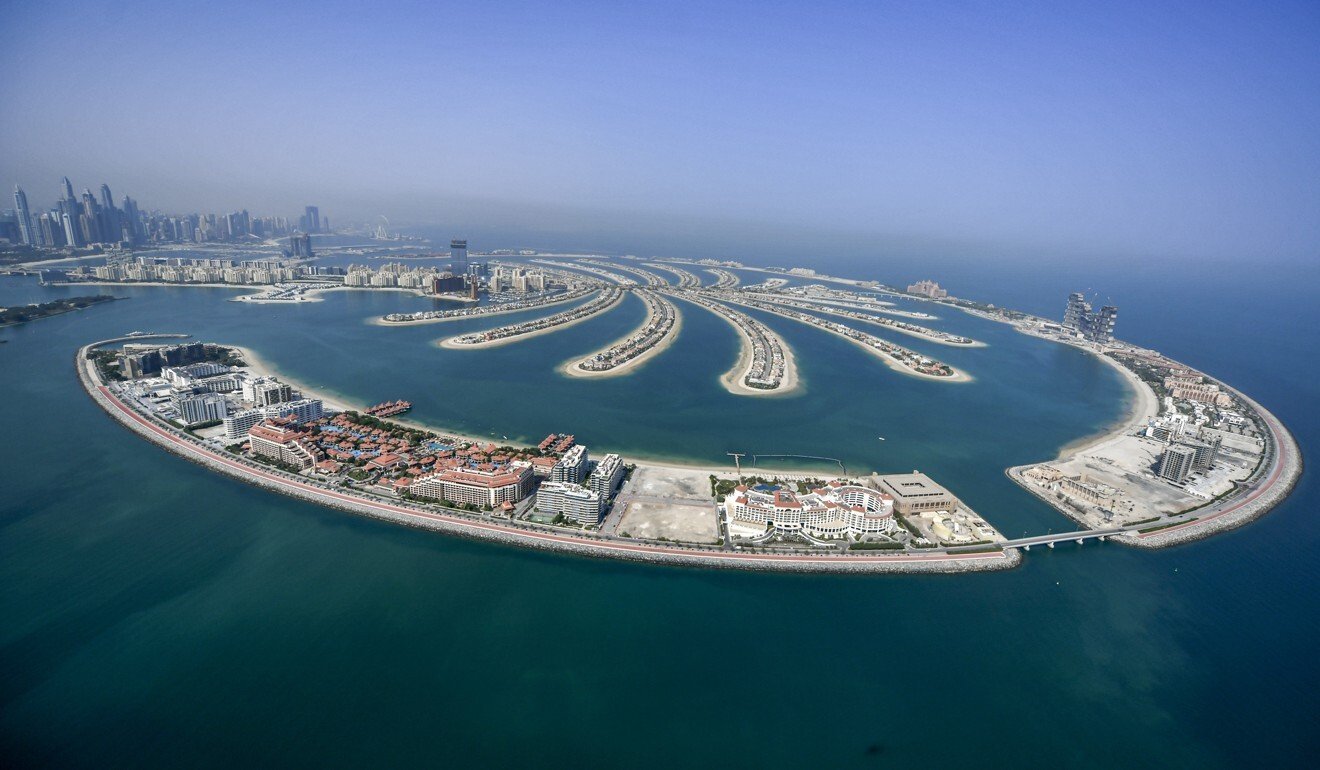
In Doha, the 400-hectare man-made island Pearl-Qatar was initially estimated to cost about US$2.5 billion, and now boasts a population of about 33,000 with around 25,000 residential units.
How did the idea come about?
The idea to build a new town in the waters off Hong Kong Island can be traced back to the colonial period.
In the 1980s, the government launched a study to look into the possibility of creating an “East Lantau Island” as a new town to be connected to Hong Kong Island through an underwater tunnel, but the idea never went forward.
Around that time, tycoon Gordon Wu Ying-sheung introduced a proposal to build a container port and residential and commercial area in the same waters, but the scheme was not supported by the government.
After the 1997 handover, the city’s third chief executive, Leung Chun-ying, who called the housing shortage Hong Kong’s most pressing social problem, announced in his 2014 policy address a plan to develop an East Lantau Metropolis. But Leung soon found himself embroiled in the debate over electoral reform and the subsequent Occupy Central protests, with the Lantau project falling by the wayside.
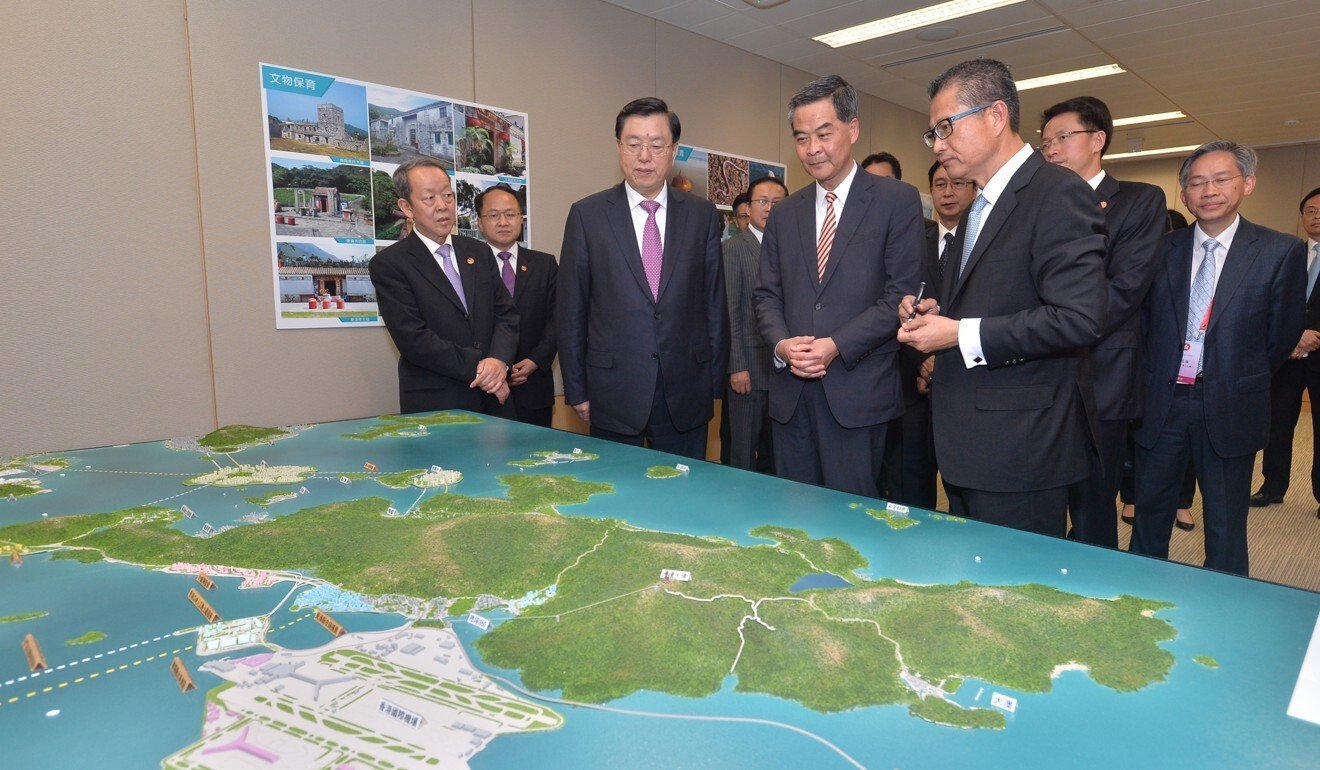
When Carrie Lam succeeded him, she appointed a land supply task force to initiate what she called a “big debate on land”, listing an array of options for tackling the land shortage. The Lantau scheme was revived and recommended by the task force as the key source of long-term housing supply.
What are the arguments for and against the scheme?
Opponents of the scheme, including former opposition lawmakers and green groups, have cited soaring costs, environmental concerns and doubts over the reclamation’s necessity as marks against the project.
Greenpeace, for one, says that project would drain the public coffers within as little as seven years, at a time when fiscal reserves are already dwindling amid the Covid-19 pandemic.
One alternative, as first put forward by concern group Liber Research Community, would be to instead focus on the systematic redevelopment of so-called brownfield sites in the New Territories, which are abandoned plots of agricultural or rural land used for industrial workshops.
Some scientists, meanwhile, have warned the reclamation process could suffocate marine life and create smelly harbours.
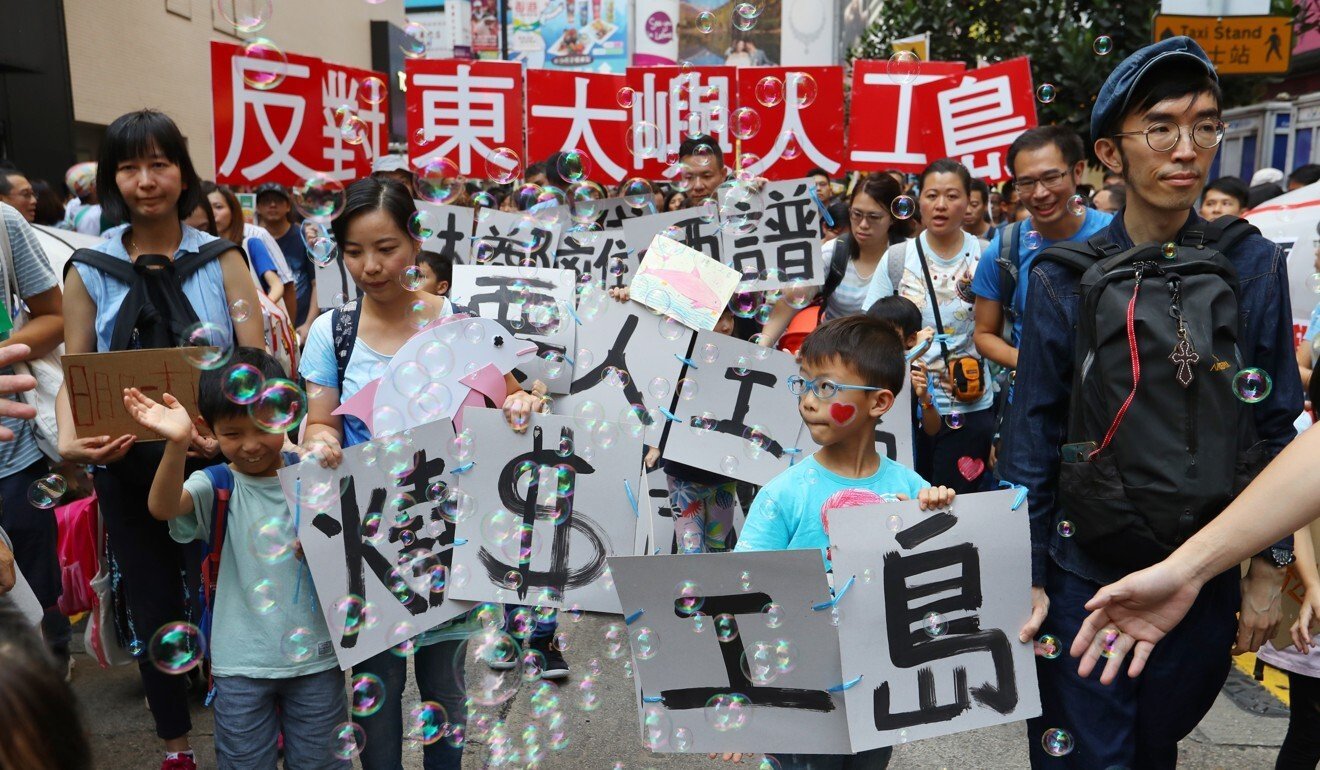
In response, officials have argued that they would look into different models to finance the works over time, such as issuing bonds, tapping into private-sector investment and relying on land revenues from the new railway.
Supporters, most notably the think tank Our Hong Kong Foundation led by former city leader Tung Chee-hwa, have argued the project was the only feasible way to tackle the city’s chronic land shortage, as the process would be free of obstacles, such as relocating existing settlements and residents, which have often bogged down infrastructure projects in the past.
How has the project become more controversial and political?
In 2018, just two months before the land supply task force made its recommendations based on feedback from a public consultation, Carrie Lam announced she would go ahead with the Lantau plan, with an extension from 1,000 hectares to 1,700 hectares. The extension was never mentioned in the consultation.
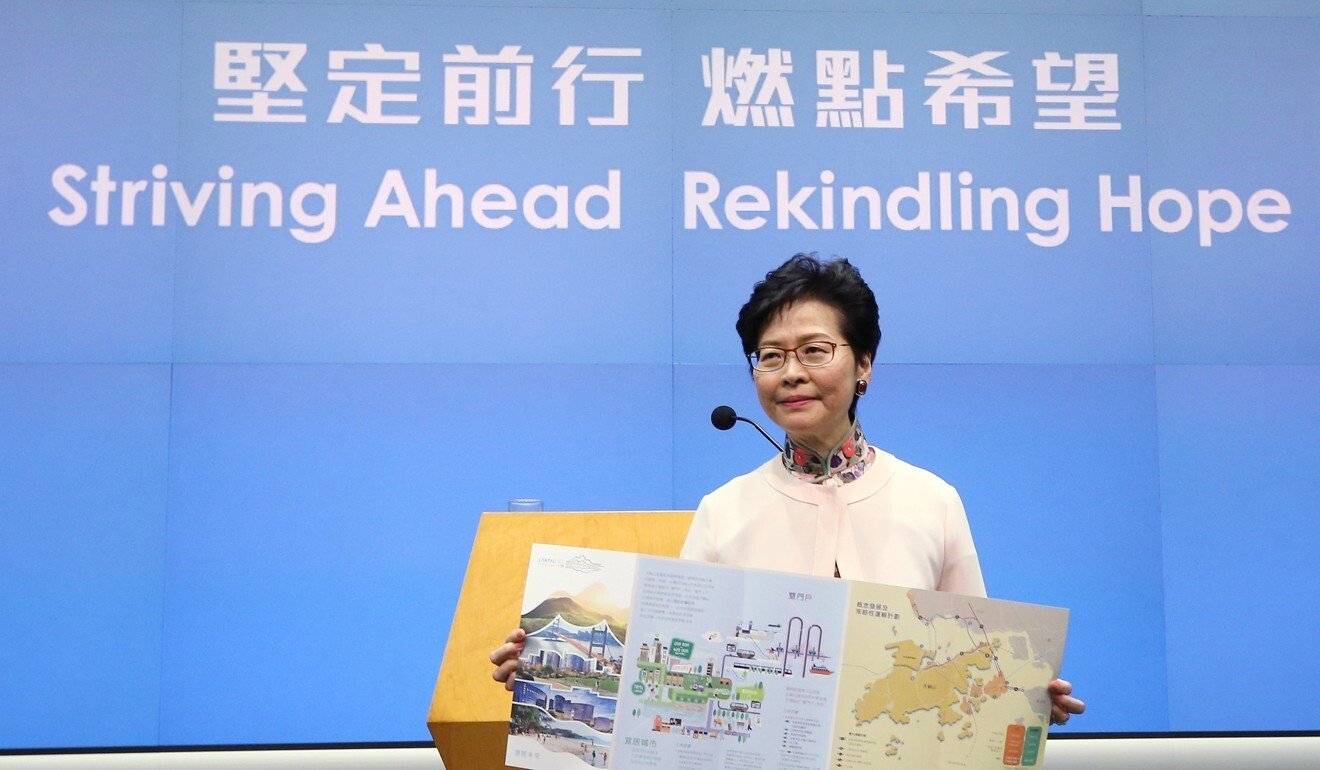
Critics accused her of destroying the task force’s credibility by pre-empting its findings and subverting the democratic process.
The opposition camp vowed to block any funding proposal relating to the Lantau scheme, but their collective resignation last month has left the pro-establishment bloc firmly in control of the legislature.
Will the project really solve the housing problem once and for all?
Friday’s vote was only the first step in a long process. The feasibility study will take 42 months to finish, and cover environmental and technical assessments – meaning it will be completed two years after Lam’s term expires in 2022, unless she serves another. In the meantime, the government will also have to explore financing models to fund the project.
The pro-establishment lawmakers already cautioned on Friday that their vote was not necessarily a pledge of support for further funding for the project’s implementation. Starry Lee Wai-king, chairwoman of the biggest party in the camp, said they would also closely monitor the planning for the financing models to ensure fairness and transparency in tapping private capital.
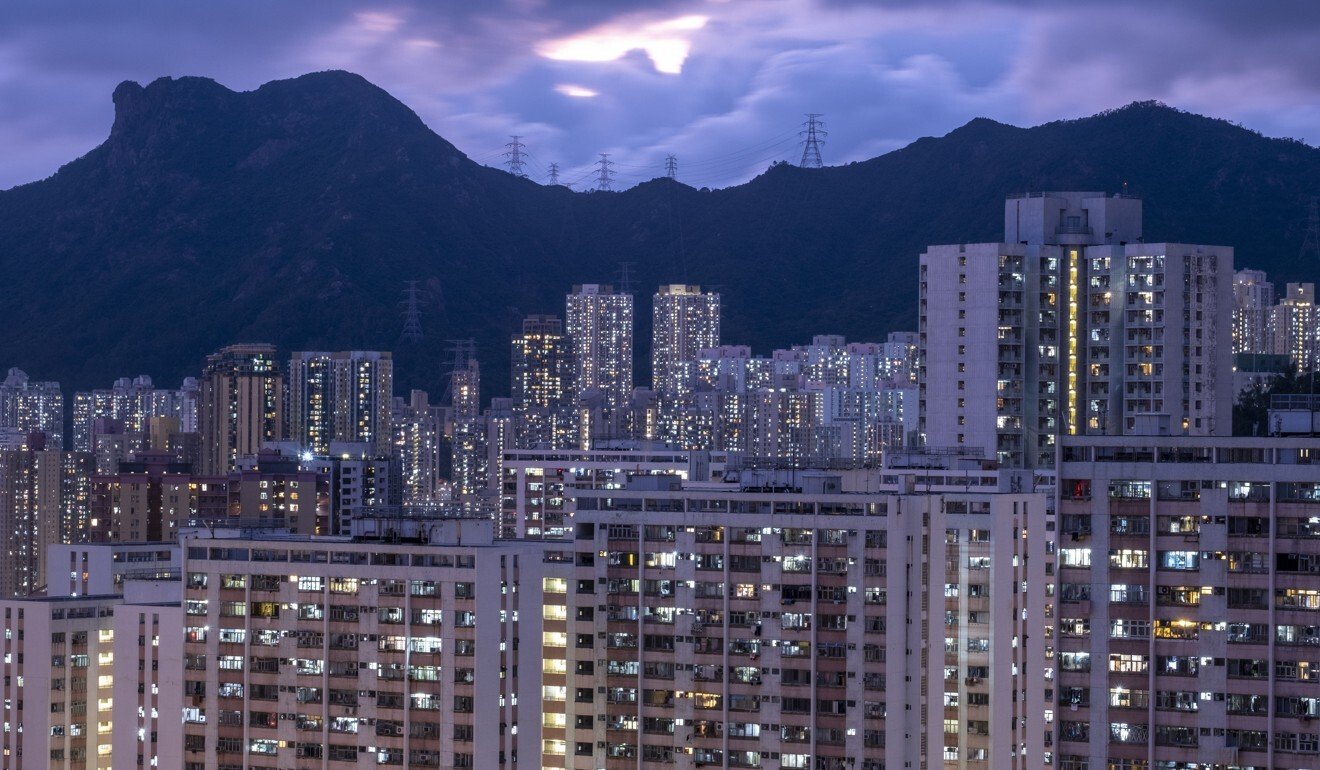
Others raised the broader question of confidence in the city’s future.
Even Regina Ip Lau Suk-yee, lawmaker and a member of Lam’s de facto cabinet, asked: “We are lagging behind [mainland cities] in the Greater Bay Area in battling the pandemic and in economic recovery, and they have no black-clad [protesters] … On what basis do you think our land will remain as valuable as it’s been?”
So far, it appears officials still have a long way to go in uniting all quarters behind the grand scheme, all of which will further depend on maintaining the political will to steer it through the years to come.










